
exploring future design
des200 finalists at biodesign challenge
des200 finalists at biodesign challenge
exploring future design
exploring future design
des200 finalists at biodesign challenge
"UniSC Design students create a recyclable seaweed fabric to fight fashion waste and a vertical plant growth kit that texts its owner to top up water."
Design is a powerful tool for shaping the world we live in. At the University of SunshineCoast (UniSC), students who are passionate about pushing the boundaries of design are given the opportunity to do just that inDES200 Design Futures. This course is exciting and forward-thinking, aimed at design students who are eager to explore the future of their field.
This course encourages students to think beyond the traditional and dive into the realm of speculative and visionary design. It challenges students to ask critical questions about the role of design in our rapidly changing world and explore how it can drive innovation, solve complex problems and shape a sustainable future.
This year, two DES200 student groups showcased their exceptional talents and innovative ideas on a global stage as finalists at the Biodesign Challenge Summit. The Summit is an international competition that brings together students from around the world to explore the intersection of biotechnology, design and sustainability.
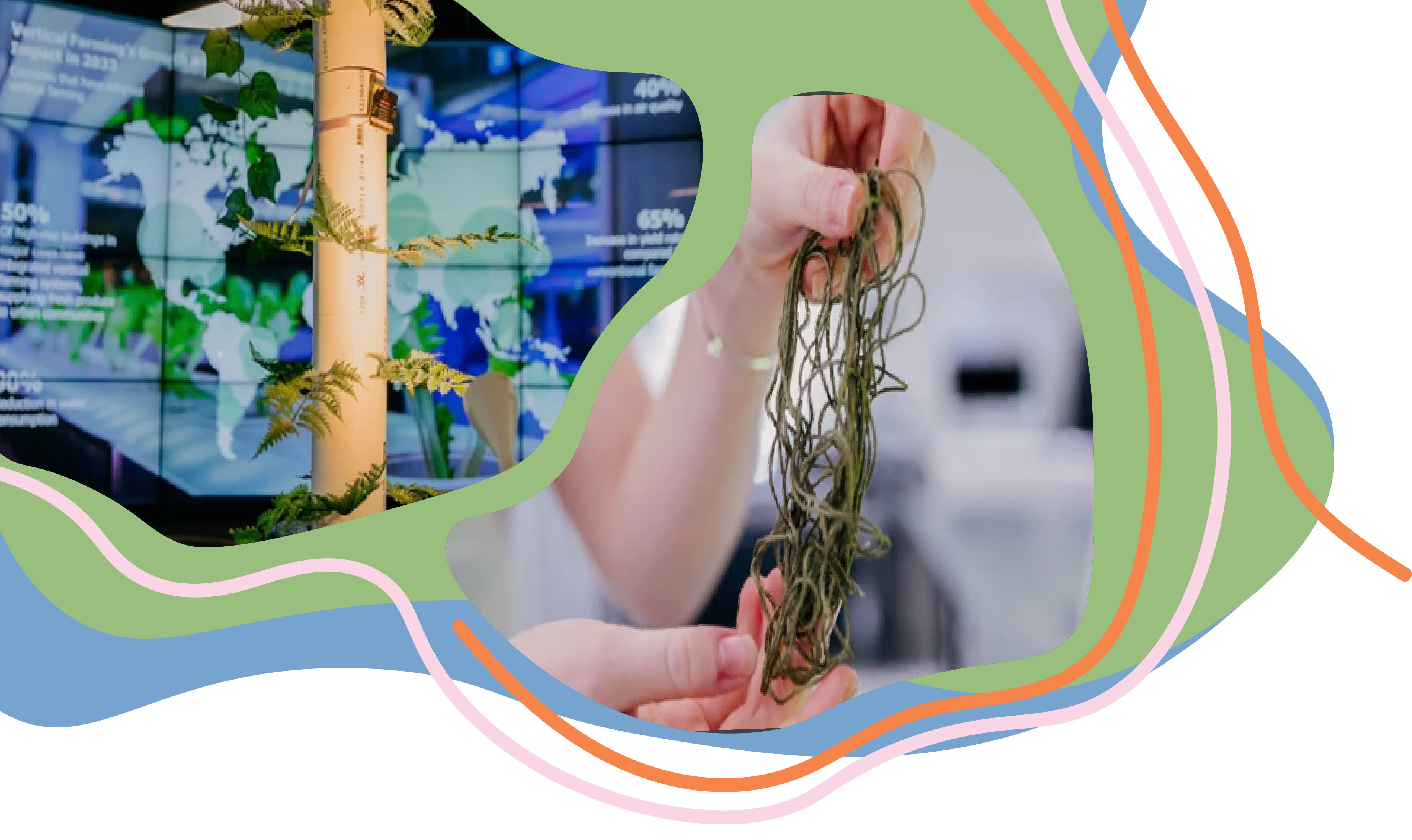

sdg_12
Responsible consumption and production
sdg_13
Climate action
sdg_15
Life on land
sustainable development goals
sdg_12
Responsible consumption
and production
sdg_13
Climate action
sdg_15
Life on land
sustainable development goals
sustainable development goals
sdg_12
Responsible consumption
and production
sdg_13
Climate action
sdg_15
Life on land
One group presented a project that highlighted the potential of using sustainable materials, specifically seaweed-based textiles, to revolutionise the fashion industry. That’s So Ethical explored the properties of seaweed as it regenerates naturally, grows worldwide, assists in removing carbon dioxide from the atmosphere and does not require land, freshwater or pesticides. This design is not only sustainable, but circular; ensuring that at the end of the garment’s life cycle the fibre can be recycled to assist in controlling soil erosion or be used in biofuel production. This innovative approach not only resonates with fashion-conscious individuals but also highlights the importance of responsible choices for the environment, making it a great example of the Sustainable Development Goal (SDG) 12’s target of responsible consumption and production.
This project also connects with SDG_13 (Climate Action) as fast fashion significantly contributes to climate change through its greenhouse gas emissions and resource-intensive practices. Annually, the fashion industry generates a staggering 92 million tonnes of waste and uses 79 trillion litres of water. Shockingly, many of these garments are worn only seven times before being discarded to landfill. This highlights the urgent need for work towards combating the fashion industry’s impact on the planet.
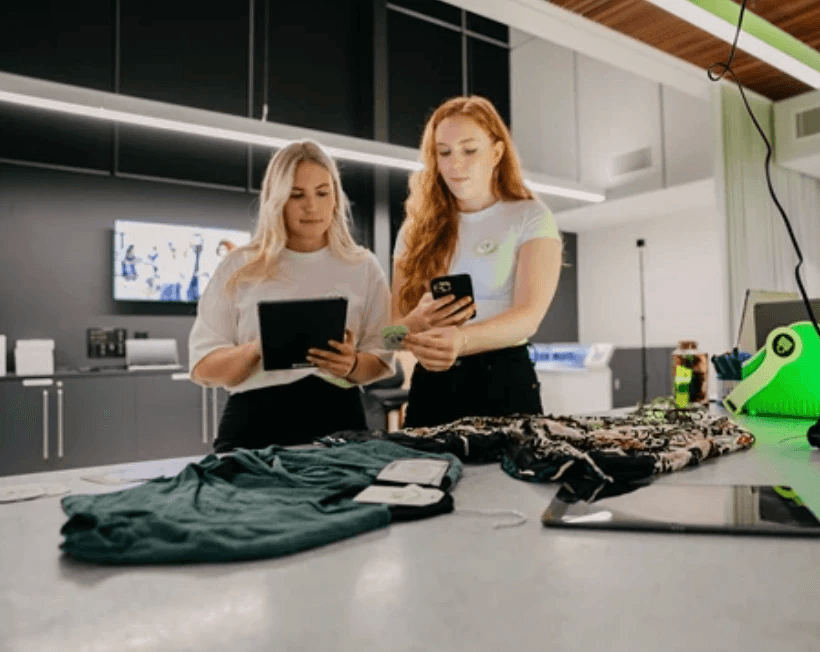

The second group demonstrates a strong alignment with SDG_15 (Life on land), as they have developed a prototype for a vertical aeroponic farming kit called Vaero. This interactive and stackable farming kit aims to assist people in growing various plants, including leafy vegetables, by offering an easy to assemble system that comes with personality.
The integration of technology allows this planter to provide visual indicators of the plants condition, such as smiles, frowns and colours. Additionally, the kit sends texts to users to alert them when the plants need more water. Vertical farming offers amore sustainable approach to agriculture as it requires less water, land, resources and pesticides compared to traditional farming. Vaero aims to address the disconnect people have with nature and contribute to improving food supply and enhancing air quality. This project provides a strong example of SDG_15’s objectives, as it focuses on strategies to safeguard and rejuvenate terrestrial ecosystems and biodiversity.
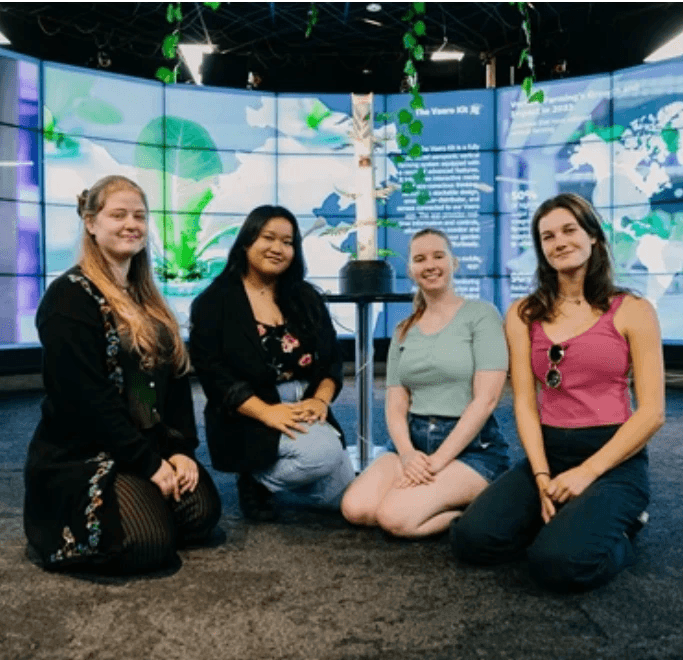

The involvement of DES200 students in the Biodesign Challenge Summit serves as an inspiration to current and future design students at UniSC. The course is a platform for students to explore design, innovation and sustainability and will continue to educate and inspire future designers to create groundbreaking and innovative designs.
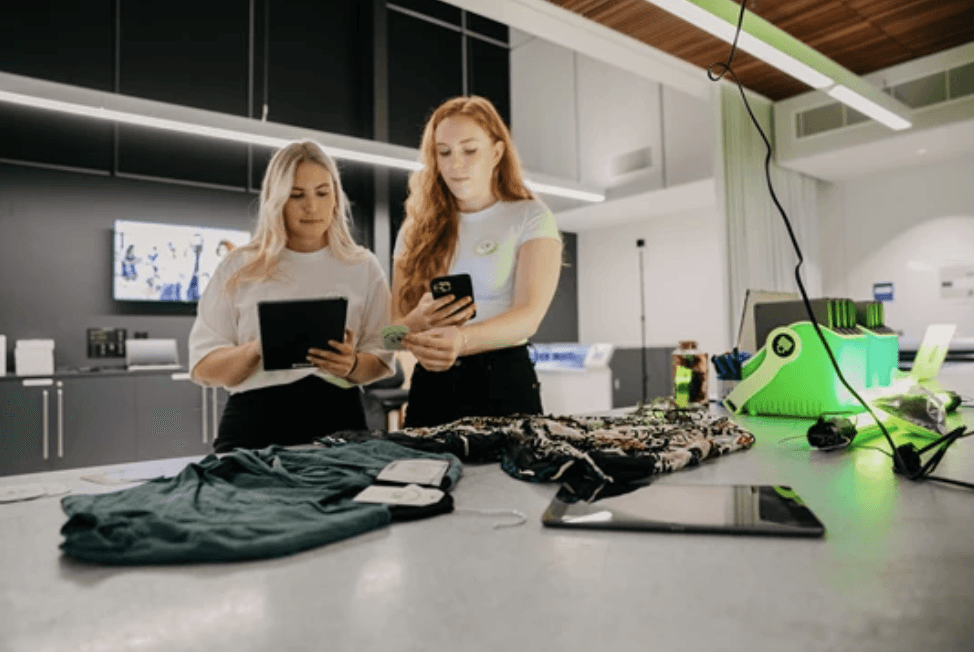

One group presented a project that highlighted the potential of using sustainable materials, specifically seaweed-based textiles, to revolutionise the fashion industry. That’s So Ethical explored the properties of seaweed as it regenerates naturally, grows worldwide, assists in removing carbon dioxide from the atmosphere and does not require land, freshwater or pesticides. This design is not only sustainable, but circular; ensuring that at the end of the garment’s life cycle the fibre can be recycled to assist in controlling soil erosion or be used in biofuel production. This innovative approach not only resonates with fashion-conscious individuals but also highlights the importance of responsible choices for the environment, making it a great example of the Sustainable Development Goal (SDG) 12’s target of responsible consumption and production.
This project also connects with SDG_13 (Climate Action) as fast fashion significantly contributes to climate change through its greenhouse gas emissions and resource-intensive practices. Annually, the fashion industry generates a staggering 92 million tonnes of waste and uses 79 trillion litres of water. Shockingly, many of these garments are worn only seven times before being discarded to landfill. This highlights the urgent need for work towards combating the fashion industry’s impact on the planet.
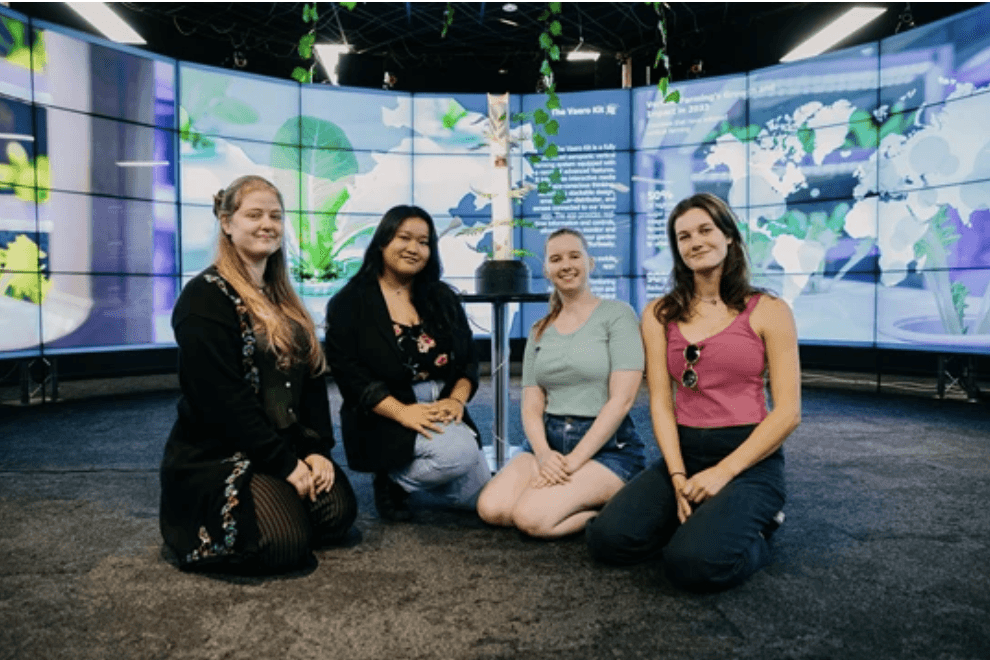

The second group demonstrates a strong alignment with SDG_15 (Life on land), as they have developed a prototype for a vertical aeroponic farming kit called Vaero. This interactive and stackable farming kit aims to assist people in growing various plants, including leafy vegetables, by offering an easy to assemble system that comes with personality.
The integration of technology allows this planter to provide visual indicators of the plants condition, such as smiles, frowns and colours. Additionally, the kit sends texts to users to alert them when the plants need more water. Vertical farming offers amore sustainable approach to agriculture as it requires less water, land, resources and pesticides compared to traditional farming. Vaero aims to address the disconnect people have with nature and contribute to improving food supply and enhancing air quality. This project provides a strong example of SDG_15’s objectives, as it focuses on strategies to safeguard and rejuvenate terrestrial ecosystems and biodiversity.
The involvement of DES200 students in the Biodesign Challenge Summit serves as an inspiration to current and future design students at UniSC. The course is a platform for students to explore design, innovation and sustainability and will continue to educate and inspire future designers to create groundbreaking and innovative designs.
13.10.23
written by
cassie dimmick

One group presented a project that highlighted the potential of using sustainable materials, specifically seaweed-based textiles, to revolutionise the fashion industry. That’s So Ethical explored the properties of seaweed as it regenerates naturally, grows worldwide, assists in removing carbon dioxide from the atmosphere and does not require land, freshwater or pesticides. This design is not only sustainable, but circular; ensuring that at the end of the garment’s life cycle the fibre can be recycled to assist in controlling soil erosion or be used in biofuel production. This innovative approach not only resonates with fashion-conscious individuals but also highlights the importance of responsible choices for the environment, making it a great example of the Sustainable Development Goal (SDG) 12’s target of responsible consumption and production.
This project also connects with SDG_13 (Climate Action) as fast fashion significantly contributes to climate change through its greenhouse gas emissions and resource-intensive practices. Annually, the fashion industry generates a staggering 92 million tonnes of waste and uses 79 trillion litres of water. Shockingly, many of these garments are worn only seven times before being discarded to landfill. This highlights the urgent need for work towards combating the fashion industry’s impact on the planet.


The second group demonstrates a strong alignment with SDG_15 (Life on land), as they have developed a prototype for a vertical aeroponic farming kit called Vaero. This interactive and stackable farming kit aims to assist people in growing various plants, including leafy vegetables, by offering an easy to assemble system that comes with personality.
The integration of technology allows this planter to provide visual indicators of the plants condition, such as smiles, frowns and colours. Additionally, the kit sends texts to users to alert them when the plants need more water. Vertical farming offers amore sustainable approach to agriculture as it requires less water, land, resources and pesticides compared to traditional farming. Vaero aims to address the disconnect people have with nature and contribute to improving food supply and enhancing air quality. This project provides a strong example of SDG_15’s objectives, as it focuses on strategies to safeguard and rejuvenate terrestrial ecosystems and biodiversity.
The involvement of DES200 students in the Biodesign Challenge Summit serves as an inspiration to current and future design students at UniSC. The course is a platform for students to explore design, innovation and sustainability and will continue to educate and inspire future designers to create groundbreaking and innovative designs.
13.10.23
written by
cassie dimmick
13.10.23
written by
cassie dimmick

